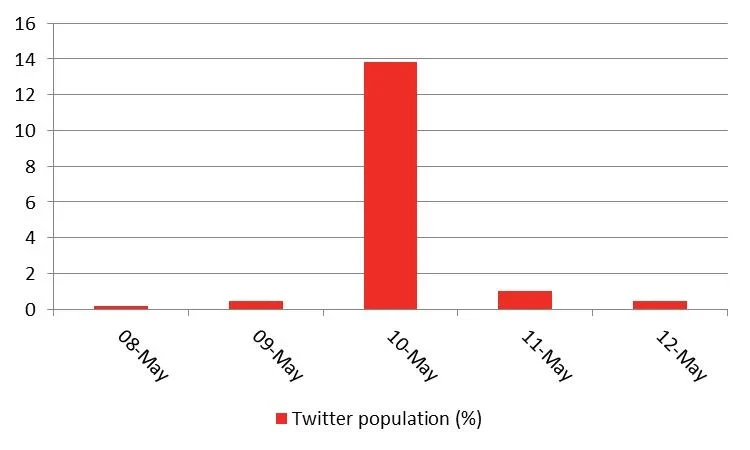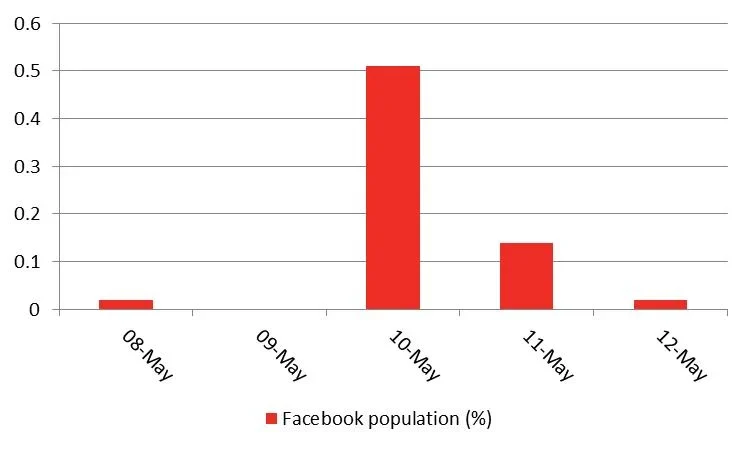On 10 May, ratings agency Moody’s downgraded The Co-Operative Bank’s debt rating following fears of potential losses.
The six-notch downgrade to ‘junk’ status was in response to the bank’s weak capital position, with the ratings agency indicating that the bank may require “external support” to strengthen its balance sheet.
Many were surprised at the scale of the downgrade, and since then the bank has been reassuring customers that it would not need external support.
Using YouGov’s social media analysis tool, SoMA, we can see how the news of the downgrade played out on social networking sites. On Twitter we can see that 13.8% of the Twitter population heard about The Co-Operative Bank on 10 May, compared to 0.5% on the previous day, while on Facebook the amount of people who heard about the Co-op Bank rose to 0.51% of the Facebook population, compared to 0% on the day prior to the downgrade. Although the Facebook numbers seem small, the larger number of Facebook users (around 30 million) makes them significant.


However, by looking at the two most popular words on each of the social networks, it seems that the nature of the messages heard on Facebook had a more serious undertone. While the two most popular words mentioned alongside The Co-op Bank on Twitter were ‘Moody’ and ‘downgrade’, on Facebook they were ‘worrying’ and ‘union’. The prevalent message on Facebook referred to a Guardian article which noted how the Bank had reassured the unions over its future.
Thus, not only is SoMA able to indicate an increase in social media activity, but it is also offers insight into exactly what messages are heard. In this instance, it is clear that while the same story drove activity on both Twitter and Facebook, the nature of the messages received on Facebook seemed to have a more serious undertone. This knowledge could have been used by The Co-Operative Bank to effectively communicate on social networking sites.






